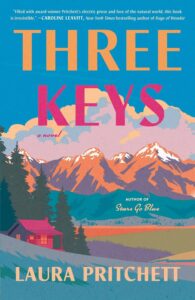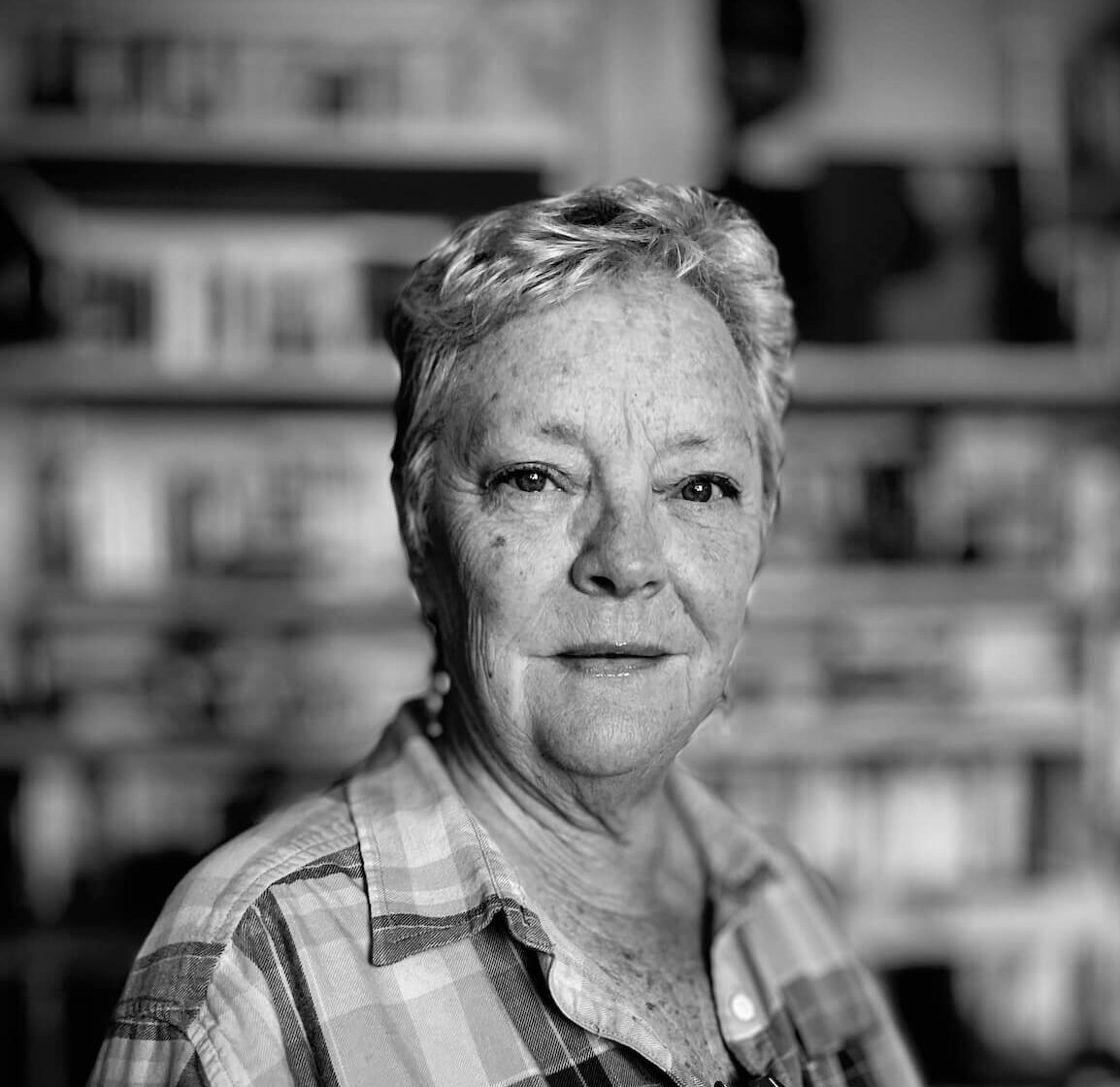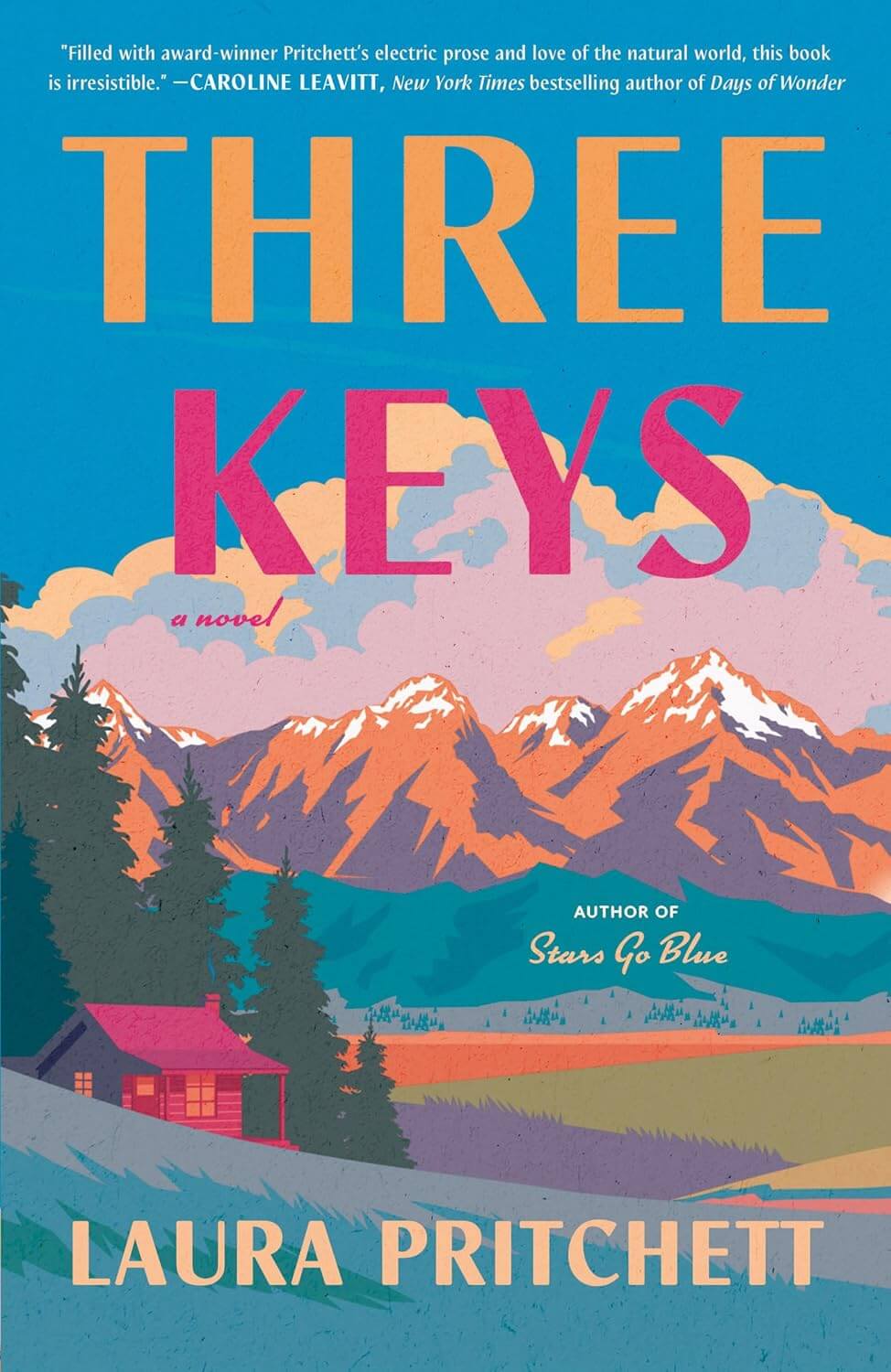Road trip
Laura Pritchett’s modern-day female odyssey through the perils of middle age
Laura Pritchett’s modern-day female odyssey through the perils of middle age
Laura Pritchett, on whom we can rely for serious portraits of women—generally in the Rocky Mountain West, facing obstacles of place and heart—dives gleefully and with zest into the territory of middle-age womanhood in her newest novel, Three Keys. The coming-of-age story of Ammalie, a suddenly widowed empty-nester in her 50s, Three Keys pits Ammalie against cold-blooded nature, the roller-coaster path of her own conscience and the limitations of human initiative to make sense of a life. In the end, Ammalie learns, it’s as much about what the world makes of us as what we make of ourselves.

Laura Pritchett
Ammalie’s journey begins on the road in a boat-sized car she calls Grey Goose, as she flees her home and job in Chicago to pursue adventures in the wild. Her son has left for college and her husband—who dropped dead before she could divorce him—haunts her days. She sleeps in the back of her car and hasn’t showered for as long as she’s been on the road, leaving her in a feral condition, aimed for adventure and steeped in vagrancy.
Ammalie’s fat key ring defines the route of her pilgrimage. She has keys to three homes—one in Colorado, one in Arizona and one in New Zealand—relevant to her past; either she has visited these places or her husband did on occasions when she stayed behind at home. She’s hoping they are vacant and will provide shelter and meaning as she figures out where the hell she’s going and what she’ll do next in this life that she feels has escaped her.
Ammalie’s feelings about herself will be familiar to readers who were surprisingly awakened when they realized that, at middle age, they’d become invisible in the eyes of the popular culture. Being invisible, she realizes, is an advantage when your goal is to sneak into other people’s houses to make yourself a temporary home.
Colorado readers will enjoy her road trip through Denver (harrowing,) over Kenosha Pass with a stop at its packed parking lot, then farther south along the continental divide to house number one, a well-appointed vacation home in the mountains, conveniently unoccupied. Pritchett proves to be a capable travel guide with her descriptions of mountain vistas, road conditions and winding routes. Ammalie’s still pretty timid at this point, even a little paranoid, but she is energized by rescuing a dog, then rescuing a tree—acts that prepare her for a more difficult and deeper excursion into a wild, sometimes hostile environment in rural Arizona.
Throughout the journey, Ammalie maintains contact with three people from her former life: best friend Mari, who’s thinking  of leaving her own marriage; sister Apricot, who quietly suffers cancer, and her distant son, Powell, who’s grieving his father’s death and trying to figure out whether he wants an active relationship with his mother. Through the vehicle of a cellphone, we get lots of backstory that’s key to understanding Ammalie, and interior views of her character animated by dialogue, sparing us endless introspection by this solo traveler.
of leaving her own marriage; sister Apricot, who quietly suffers cancer, and her distant son, Powell, who’s grieving his father’s death and trying to figure out whether he wants an active relationship with his mother. Through the vehicle of a cellphone, we get lots of backstory that’s key to understanding Ammalie, and interior views of her character animated by dialogue, sparing us endless introspection by this solo traveler.
Along the way to her new life, the ultimate destination of Three Keys, Ammalie defines her relationship with the natural world, and her responsibility within it. (This wouldn’t be a Laura Pritchett novel if that weren’t the case.) Some of the passages describing the sights Ammalie beholds as she travels—I’m thinking of a brief detour to the Bosque del Apache in winter, when it is filled with hundreds of thousands of snow geese and wintering sandhill cranes—are pure gifts to the reader. How could Ammalie not be changed by these sights, as so many of us have been?
Following the November election, I welcomed the unflinching, borderline bawdy humor in Three Keys, born of a weary knowledge of what it feels like to have lived more than half a life for others and finally understanding that this life of ours is the only one we’ve got and we’d better get moving. Now. Ammalie made me laugh a lot, largely in self-recognition, and for that I was, and remain, grateful.
This female odyssey is a quick read that moves like a breeze but is pithy in substance, a delightful mix of all the things that age us—grief and regret, lust and love, hope and despair, duty and dreams, boredom and bliss, fear and courage—seasoned with wit and a slightly warped perspective. In an imperfect world, it’s a gin and tonic on a hot summer afternoon, fizzy and potent.
Click here for more from Kathryn Eastburn.

